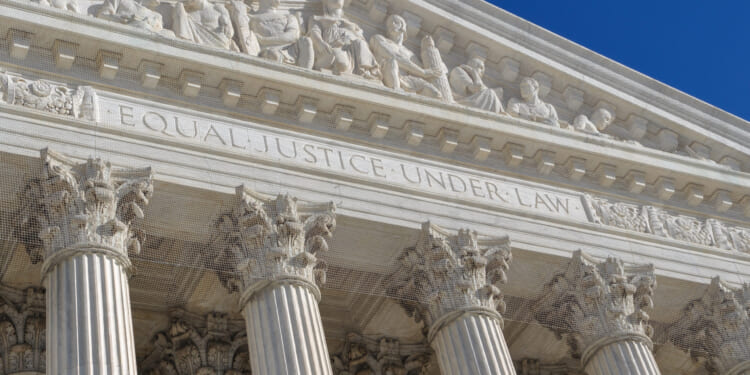Shawn Fleetwood of the Federalist seeks expert opinion about the US Supreme Court’s approach to President Donald Trump’s tariffs.
[T]hese cases specifically center around the legality of Trump’s use of the International Emergency Economic Powers Act (IEEPA) to impose tariffs on goods from foreign nations making their way into the United States. …
… “It really feels like this is a coin flip in terms of the outcome,” Heritage Foundation Chief Economist E.J. Antoni told The Federalist. “Not only am I uncertain on how [the justices] are going to interpret the law, but I’m also uncertain on how they’re going to interpret the economic situation because there are competing economic theories here. … I think it could go either way.” …
… In their respective filings with SCOTUS, Learning Resources and V.O.S. Selections argued that the president lacks the constitutional authority to impose tariffs under IEEPA. They specifically cited the first clause of Article I Section 8 of the Constitution, which states that, “Congress shall have Power To lay and collect Taxes, Duties, Imposts and Excises, to pay the Debts and provide for the common Defence and general Welfare of the United States; but all Duties, Imposts and Excises shall be uniform throughout the United States.”
“IEEPA does not give the President the vast power he has seized,” Learning Resources’ petition for certiorari reads. “IEEPA does not mention the word ‘tariff’ or ‘tax,’ and no other President in its nearly 50-year history has ever relied on it for tariffing power.” …
… While the Supreme Court (and other courts) has tackled matters involving tariffs throughout its history, it remains unclear how the justices will grapple with Trump’s use of IEEPA in these two cases, according to Antoni.
In expressing uncertainty about how the high court will come down on the issue, the Heritage fellow noted the differing consensus among economists about whether trade deficits “are always a problem.” He further questioned whether and how the justices will deal with such differences when handling these cases.











